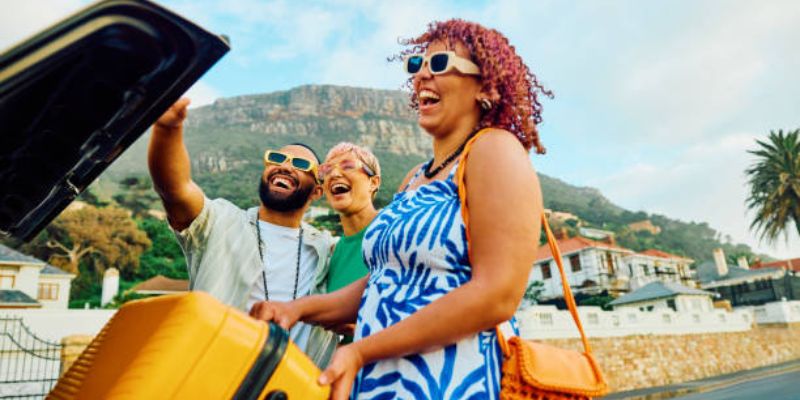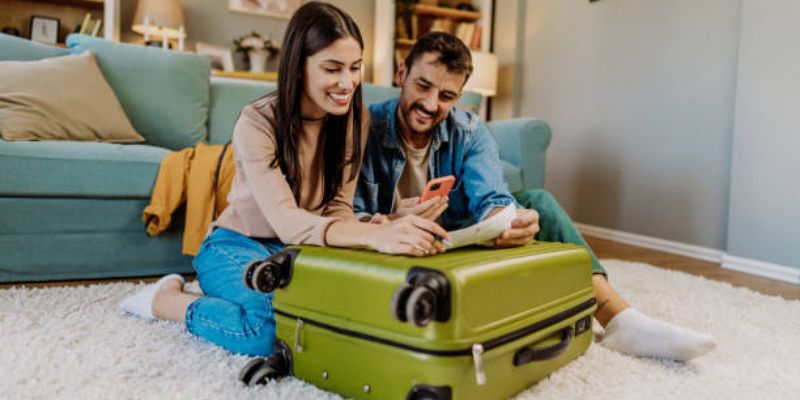How To Plan a Trip On a Tight Budget
Booking a trip when you're pinching pennies is like solving a puzzle. But guess what? It's not impossible. With creative thinking and innovative strategies, you can still have a nice adventure without a load of cash. I've been there — sitting at my work desk, gazing intently at my savings account and thinking about whether I still could make my dream trip a reality. Spoiler alert: I succeeded, and so can you. Here's how.
Start With a Clear Goal
Before you get into the nitty-gritty, consider what you want from your trip. Do you want to chill out on a quiet beach? Or are you more interested in having the hustle and bustle of city life and sampling local foods? Having a goal will allow you to streamline your planning and not waste your money on things that won't matter much to you. For example, if you're a nature nut, you might forgo pricey tours in the city to spend your days hiking or camping. If culture is your thing, you'll want to budget for museums and historical sites.

One trick I employ is determining three main things I wish to experience each trip. This keeps me honest and makes it easier to say no to wasted money on food, drinks, etc., later.
Choose The Right Destination
Let's face it—not all places are equal when spending money. Some areas are pricey , and others give you bang for your buck. If you're on a budget, look for places where your dollars stretch farthest. Southeast Asia, Eastern Europe, and some parts of Central America are generally budget-friendly spots. Food, lodging, and transportation are more affordable in such regions than in Europe or North America.
Another idea is to go to popular places when they're not in season. So, for example, a visit to Paris in January instead of July can save you hundreds on flights and accommodation. You'll also avoid the crowds, making the entire experience more pleasurable.
Set a Realistic Budget
Now, it's time to get to the numbers. Before booking anything, determine how much you can afford to spend. Be realistic about this. Be sure to account for everything—flights, lodging, meals, and souvenirs. A general guideline is to overstate your expenses by roughly 10 per cent. That gives you a little flexibility should anything unexpected come up.
When you have your total budget, categorize that. For instance, determine what you'll spend on transportation, accommodations, food and activities. That way, you won't accidentally spend half your budget on a fancy hotel only to find yourself scrimping to pay for dinner later.
Find Affordable Flights
Flights can significantly reduce your travel budget, but there are strategies for saving. One of the most ingenious tricks is to use flight comparison websites. These tools allow you to compare prices from various airlines side by side to choose the cheapest option. A second tip is to be flexible about your travel dates. In some cases, flying on a Tuesday or Wednesday is significantly less expensive than departing on a Friday.
If you're very serious about saving, consider subscribing to price alerts. These alerts notify you of when the ticket price decreases so you can snag a deal before it's gone. Don't forget to check for budget airlines. Just watch out for hidden fees, such as those for carry-on bags or seat selection.
Save On Accommodations
Your accommodations can make or break your budget. Hotels can be friendly, but they tend to be expensive. Instead, consider hostels, guesthouses or vacation rentals. Hostels are an excellent choice if you don't mind sharing the sleeping quarters with fellow travellers. They are clean and safe and often have fun social amenities like communal kitchens or game nights.
Two solid options that I like are vacation rentals, such as those on Airbnb. Not only can they be less expensive than hotels, but they also offer access to a kitchen. If you're travelling longer than a few days, cooking meals can save you a lot of money.

For the very adventurous, try Couchsurfing. Residents provide free accommodation to visitors." This is not for everyone, but it can be a rewarding way to travel if you are open to meeting new people and seeing a place through their eyes.
Eat Like a Local
I love food—one of my favourite things about travelling—but it can also be a significant portion of your cost. To save money on food, eat like a local. Avoid the touristy restaurants around tourist attractions and go to the neighbourhoods where locals hang out. Street food is usually delicious, affordable, and offers a genuine taste of the local culture.
Local markets are another way to save. You can grab fresh fruit, snacks and even prepared meals for a fraction of what you would pay to eat out. Plus, it’s a great way to get out there and see how folks live.
If you're in a place with a kitchen, use it. Make a handful of meals yourself, and you'll see an enormous difference in your spending. Packing snacks on long travel days can also prevent you from buying overpriced airport food (or train station food if you're travelling that way), even if you don't have access to a kitchen.
Use Public Transportation
Renting a car or taking taxis everywhere can be pricey. Instead, use public transportation—buses, trains , and subways—which is almost always cheaper than a private ride. Many cities also sell tourist passes that provide unlimited access to all public transit for a specified number of days. These passes also typically include discounts on attractions, making them worth a look.
Walking is also popular, especially in small towns or pedestrian-friendly city environments. It's free and helps you uncover hidden gems you might not otherwise find.
Look For Free Activities
You don’t have to break the bank to have a good time. Many cities have free walking tours, museum days or outdoor events. Do some research before your trip to see what’s available. Parks, beaches and hiking trails are always free and offer endless entertainment.
If you decide to splurge on a paid activity, try splitting the cost with friends or family. Group rates are usually lower; experiencing it with others improves the experience.
Pack Smart
Packing well may save you time and money. Write down a list of things you need, and follow it. Overpacking can mean extra baggage fees, and underpacking could lead to spending money on items you don't have.
So pack multiuse items. A scarf (say) might serve as a blanket on a cold plane journey or a cover-up on the beach. It’s also a good idea to bring a reusable water bottle. Refilling one is free, and it reduces plastic waste.
Stay Flexible
These days, when you have a budget to travel, be prepared to change your mind if there's a better deal. Perhaps you snag a last-minute deal on a hostel or hear about a free festival nearby. By being flexible, you could embark on surprises and savings.

Keep Track Of Your Spending
It can be easy to forget your budget once you hit the road, even if you have a good plan. To prevent blowing your budget, write down your daily expenditures. A simple notebook or budgeting app on your phone is all you need. Reviewing your spending regularly will help you stay focused and make adjustments if necessary.
Enjoy The Journey
Budget travelling does not mean you should give up on the fun or adventure. With defined goals, budget-friendly destinations, and wise decisions throughout, you can have lifetime memories without emptying your wallet. The best trips aren't about how money, though—working experiences and meeting people make a trip.